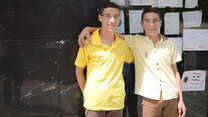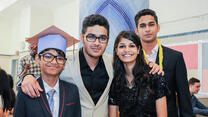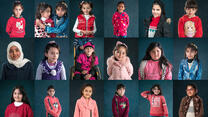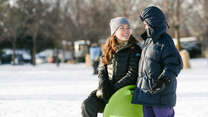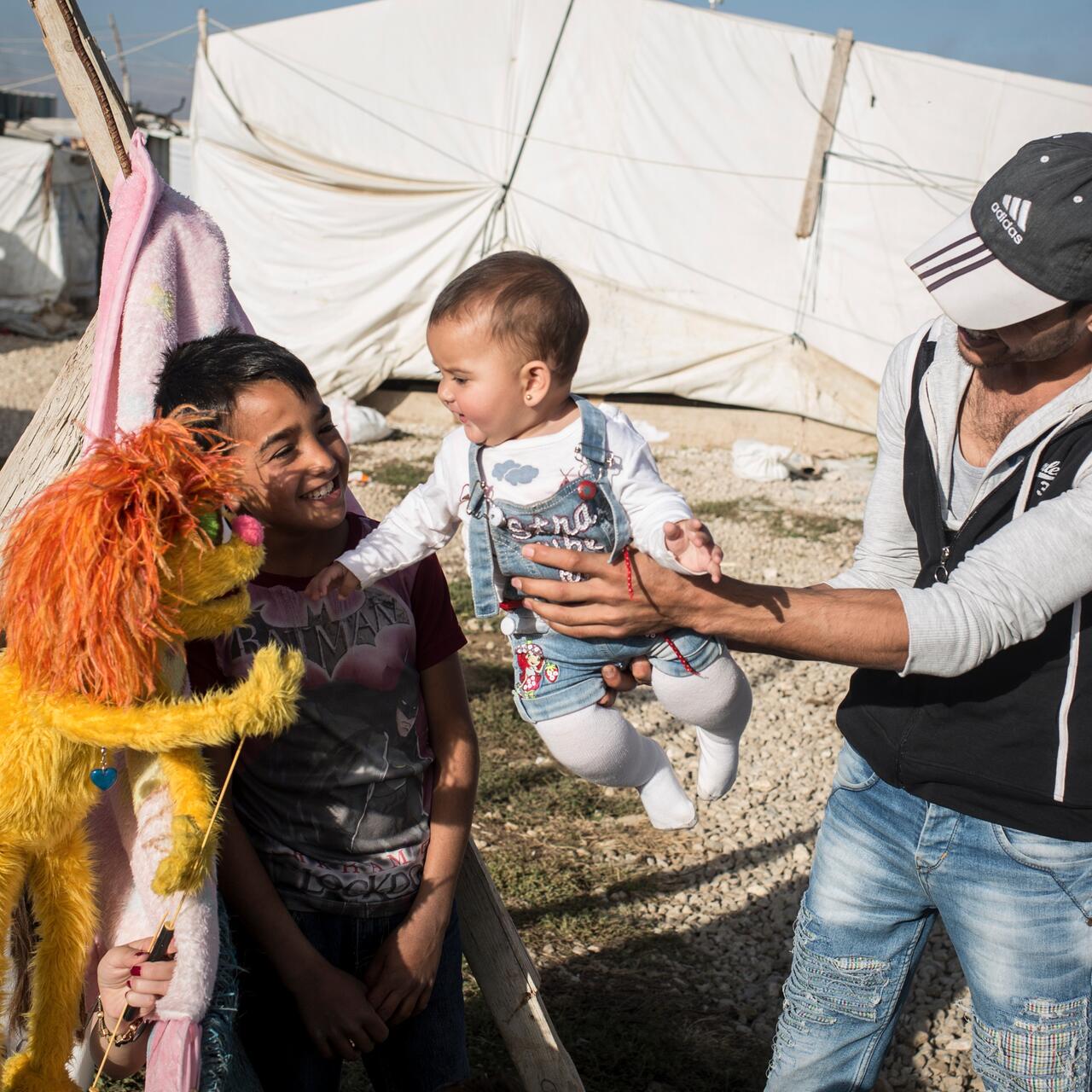
Millions of young Syrians know only bombed-out ruins, not schools—soldiers, not teachers. They are fleeing brutal conflicts instead of learning in safe classrooms. Together, the International Rescue Committee and Sesame Workshop are responding to the crisis by bringing laughter and learning to the most vulnerable children in the world.
The IRC and Sesame Workshop—the nonprofit, educational organization behind Sesame Street—have been awarded $100 million in the MacArthur 100andChange competition for our partnership to deliver the largest transformative early learning program in the world. We’ll use TV, mobile phones, teacher training and home visits to give more than nine million refugee children in the Middle East the language, reading, math and emotional skills they need to succeed.
Meet some of these children, who are living as refugees in Lebanon:

Maha, 30, bought her daughter Hanadi books, school supplies and new clothes to get her excited about starting school. But the eight-year-old is terrified: “She’s afraid either a bomb will destroy her classroom or someone will come and shoot her,” Maha says.
Hanadi was just four when she and her family left their comfortable lives in Homs after an airstrike destroyed the local school. All she remembers of home are the trees, bombings and the death of her uncle.

Five-year-olds Ahmed and Khalid arrived as toddlers and now live in Ghazze, Lebanon. Ahmed’s father died in the war, while Khalid’s father is stuck inside Syria.
“It’s so important to create a learning environment at home,” Khalid’s mother Maha says. “[The boys] watch educational videos on YouTube; we write and read together.”

Hakmeeya lost three of her children to the war in Syria and left her home in Raqqa a year ago with the two who survived. “We fled when ISIS came,” she says. “They used to punish children, so our children were afraid.”
Her four-year-old son Amin loves to go to preschool, but because of the trauma he experienced, he’s unable to focus. He’s always “daydreaming” and doesn’t make friends easily, Hakmeeya adds.

Merhi and Manduh’s mother Karam has tried to create as normal a life as possible for her children. She knows they could be stuck in Lebanon for years, so she has made it feel like home, with a swing built by the children's grandfather and bicycles.
“They used to love going to school but when the situation became worse in Syria, they no longer went,” she says. “We had to build underground shelters to hide from the bombings. They get frightened whenever they hear noises or fireworks.”

“Musa is seven years old, but doesn’t know much,” says his mother, Kausar. Musa has not been able to enroll in public school in Lebanon because classrooms are full. Although he tries to read and write at home, Kausar says, she is worried her son will fall behind.
She knows what else he’s missing besides an education: “When a child attends school, he or she becomes strong and self-confident.”

Four-year-old Maysum has a speech impediment that makes it difficult for her to communicate her feelings to her parents. She goes to an IRC-run class where she has learned to identify letters and numbers.
"She used to be very shy and was afraid to go to school, but she enjoys it now and has made friends," her mother Ifthan says. "She has trouble talking to her teacher and gets easily frustrated when she cannot tell us what is wrong with her."

The IRC and Sesame Workshop will develop engaging and educational print and broadcast content that will introduce children to furry, loveable Sesame Muppet characters who understand their lives and experiences. In addition to literacy and math, Syrian children will gain essential social and emotional skills that will help them overcome hardship and them thrive in the future.

“We are aware that these children have come from war,” says IRC teacher Amina Hussein Fneish. “They have seen things that scared them. We, as teachers, have the responsibility to boost their confidence again. We work on preparing them to face the world and achieve what they want. We always try to give them hope that they will go back to Syria and rebuild their lives again.”
